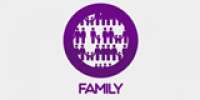Different Families, Same Love - Conference on LGBT families in Europe
On 4-6 March 2008, ILGA-Europe, in partnership with Informational centre LEGEBITRA, a Slovene LGBT organisation, organises a conference on LGBT families in Europe. This conference is a contribution to the current Slovene Presidency of the European Union and aims at drawing attention to the lack of recognition and existing discrimination against LGBT families at European level.
This conference will bring together LGBT activists, decision makers and experts in the field of LGBT families. The purpose of the conference is to enhance a dialogue between European institutions and civil society on the topic of legal recognition of LGBT families.
At the conference, ILGA-Europe is also launching two new reports on LGBT families. The first report provides an overview of international law affecting LGBT families and of the problems these families face because of lack of legal recognition. The second report examines the implications of the EU five-year programme on closer cooperation in justice and home affairs (the Hague Programme) for LGBT families. Additionally, ILGA-Europe is also launching a series of 12 posters and postcards portraying the diversity of LGBT families. The posters and postcards highlight the challenges and issues they face because of the lack of legal recognition, as well as various positive developments at European level advancing the legal situation for LGBT families.
Deborah Lambillotte, Co-Chair of ILGA-Europe Executive Board, said:
“With this conference, we want to put the issue of diversity of family models and their recognition firmer on the EU agenda. Unfortunately, only a few EU member states recognise and embrace families in all their diversity. In most EU countries, LGBT families and their children are still ignored, excluded and discriminated against. There is no protection or recognition of LGBT families on EU level and as a result LGBT people, same-sex couples and their children face serious disadvantages.”
Martin K.I. Christensen, Co-Chair of ILGA-Europe Executive Board, added:
“This conference is also an opportunity to continue discussion on what is considered to be a family. Currently, most EU member states and the EU itself have a very narrow interpretation and understanding of what constitutes a family – married heterosexual couple and their children. We want to shed the light on the lived realities and draw the attention of European decision makers to the fact that people live in a variety of arrangements and families. We believe it is not a matter for a state or the EU to prescribe how people should organise their lives, but rather to acknowledge, recognise and support every family in all their diversity.”
Simon Maljevac,Chair of LEGEBITRA, said:
“To host an event such as this conference during the Slovene Presidency of the European Union is an honour and a challenge for our organisation. We believe that the discussions facilitated within this conference and the relevant issues brought forward will further contribute to the better understanding of the diversity of the LGBT families in Europe and in the long run have a positive effect in many EU member states. Our hope is that the discussions, experiences and findings presented will influence and encourage national as well as international opinion-makers and authorities towards the enforcement of more inclusive and protective legal support needed for LGBT partnerships and families in EU member states.”
Ends
For more information please contact
Juris Lavrikovs at + 32 2 609 54 16 / + 32 496 708 375
or
Simon Maljevac at +386 1 430 51 44 / +386 49 415 093
Notes for editors:
(1) ILGA-Europe is the European Region of the International Lesbian and Gay Association and works for equality and human rights for lesbian, gay, bisexual and transgender people in Europe: www.ilga-europe.org
(2) Organisation Informational centre LEGEBITRA within its programs and scope of activities advocates for equality and human rights of lesbian, gay, bisexual and trans-persons: www.drustvo-legebitra.si
(3) Currently LGBT families are legally recognised only in a few EU member states:
- 3 EU member state introduced same-sex marriage – Belgium, Netherlands, and Spain;
- 6 EU member states introduced alternative registration schemes for same-sex couples alternative to marriage - Denmark, Finland, Germany, the Netherlands, Sweden, and UK;
- 7 EU member states introduced alternative registration scheme which provide considerably less rights and protections than marriage - Belgium, France, Czech Republic, Hungary (from 2008), Luxembourg, Portugal, and Slovenia;
- 5 EU member states allow joint adoption by same-sex partners - Belgium, the Netherlands, Spain, Sweden and UK;
- 7 EU countries allow second parent adoption in same-sex couples – Belgium, Denmark, Germany, the Netherlands, Spain, Sweden and UK.

 Print HTML
Print HTML









